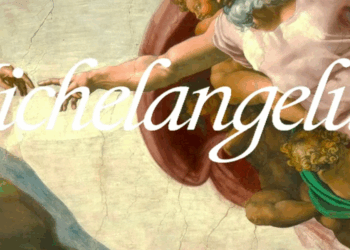In today’s spiritual marketplace, many are chasing fire like Prometheus—stealing symbols, rituals, and experiences—while refusing the Cross. I know, because I did it for nearly two decades.
My path included crystals, energy work, psychedelics, Eastern mysticism, and shamanism. I repeated the popular refrain: “I’m spiritual, not religious.” I truly believed I was seeking wisdom. In time, however, I came to see what I was actually avoiding: the Cross.
The longing for transcendence was real, but it became a kind of theater—ritual without roots, transformation without sacrifice, suffering without redemption. Real spiritual transformation costs something. It demands more than mood lighting, symbols, or secret knowledge. It demands everything.
The Illusion of Depth
One of the most subtle deceptions in modern pseudo-spirituality is the illusion of depth. We speak of shadow work, ancient energies, and cosmic alignments. We borrow the language of transcendence, but often to construct a curated journey of the self, not a surrender to truth.
For years, I told myself I had “evolved” beyond organized religion. My bookshelf overflowed with sacred texts—but never Scripture. I read the Bhagavad Gita and the Tibetan Book of Living and Dying, but ignored Augustine and Aquinas. I spoke freely of “ego death,” but rolled my eyes at sanctity.
There was no shortage of suffering in my life, but it was disconnected from redemption. I mistook confusion for mystery, and self-inflicted chaos for the trials of the saints. What I called the “Dark Night” looked nothing like what St. John of the Cross describes. His Dark Night is the painful stripping away of consolation in order to deepen love of God. Mine was the consequence of refusing to surrender.
Pseudo-spirituality often mimics the form of religion without its substance. There are candles, mantras, incense, and ritual movements. But as Tertullian once said of pagan worship, “they are ashamed of the things of which they boast.” There is an aesthetic of depth, but not the obedience that opens us to reality. What is missing is not style, but sacrifice.
Prometheus vs. Christ
Greek mythology offers a striking contrast to the Gospel. Prometheus, the Titan, steals fire from the gods and is punished—chained to a rock, his liver consumed daily by an eagle. His suffering is legendary, but it is the fruit of rebellion. He wanted transcendence on his own terms.
Christ, by contrast, does not steal fire. He is the fire. As the Letter to the Hebrews reminds us, “Our God is a consuming fire” (Heb. 12:29). And Christ willingly binds Himself to the Cross not as punishment, but as offering. His suffering is not defiance, but redemption.
These two figures form a kind of spiritual crossroads. Prometheus represents the seeker who grasps at divinity. Christ reveals the God who pours Himself out. As Augustine wrote, “You have made us for Yourself, O Lord, and our heart is restless until it rests in You.” The fire we seek cannot be stolen; it must be received.
The world still admires Prometheus. He is bold, innovative, defiant against heaven itself. In an age that prizes autonomy above all else, Prometheus is a cultural hero. But the Church holds up Christ, whose humility and obedience undo the primal theft of Eden. Where Adam grasped, Christ surrendered. Where Prometheus steals, Christ gives.
The Turning Point
Eventually, I had to face uncomfortable questions. Why was I more open to believing ancient aliens built the pyramids than I was to reading Augustine? Why did I eagerly share my ayahuasca “visions,” but never consider the mystics? Why did I revere Jesus as a teacher while refusing to reckon with His crucifixion?
Deeper still: Was it possible that the “spiritual fire” I thought I had earned was never mine to take? That the truth I claimed to seek was both simpler and costlier than I dared admit?
In time, I realized I had not been exploring mystery. I had been avoiding authority. I wasn’t being open-minded; I was being selectively suspicious. The very tradition I dismissed as rigid and dogmatic was the only one that made sense of my suffering.
Chesterton once wrote that the Christian ideal “has not been tried and found wanting; it has been found difficult and left untried.” That was true of me. I wanted transcendence without obedience, depth without dogma, fire without the Cross.
The Rock That Frees
Scripture provides another image of a rock: Abraham ascending Mount Moriah, preparing to sacrifice Isaac. The rock of sacrifice. The rock that prefigures Calvary.
Prometheus is chained to his rock for stealing what he could never earn. Christ ascends the rock of Golgotha to give what we never deserved. One is rebellion. The other is ransom.
Both paths involve suffering. But only one transforms it.
St. John Chrysostom once preached that “the Cross destroyed the enmity of God toward man, brought about reconciliation, made earth heaven, mingled men with angels.” No pagan myth, no self-constructed path, can make such a claim.
As Our Lord said: “For whoever wants to save his life will lose it, but whoever loses his life for My sake will find it” (Mt. 16:25).
The spiritual life is not about stealing fire from the gods. It is about surrendering to the God who gave Himself as fire, and who still burns at the heart of the Church.
Image from Wikimedia Commons


















